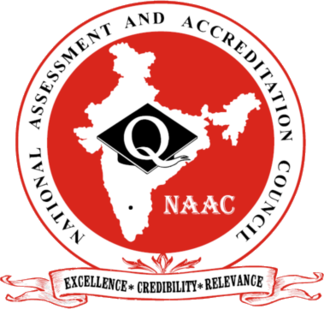
Understanding Food Technology
Food Technology is an applied science that integrates engineering, microbiology, chemistry, and biotechnology to ensure safe and efficient food production. From farm to fork, it focuses on processing, preservation, packaging, and distribution. Students pursuing a food technology course in Kolkata or B.Tech in Food Technology gain expertise in improving nutrition, safety, and sustainability, while bridging the gap between raw agricultural materials and consumer-ready products.
For aspirants looking for alternatives, options like B.Sc Food Technology, B.Sc Food and Nutrition, and Food Science Courses after 12th are also popular choices. Each program, whether BE Food Technology, Bachelor of Food Technology, or Food Technology Engineering, helps students understand the scope of food technology and the emerging trends in food science and technology.
Career Scope after B.Tech in Food Technology
The scope of food science and technology is vast, opening diverse roles across industries:
- Food Technologist – Ensuring quality and innovation in products.
- Quality Control/QA Executive – Maintaining hygiene and food safety standards.
- Product Development Scientist – Innovating flavors, fortified foods, and packaging.
- Packaging Engineer – Designing eco-friendly packaging solutions.
- Regulatory Affairs Specialist – Managing compliance with HACCP, ISO, and FSSAI norms.
- Process & Supply Chain Engineer – Streamlining operations in food processing units.
Graduates find opportunities in FMCG companies, food processing plants, beverage industries, and startups focusing on biotechnology in the food industry, plant-based foods, and nutraceuticals.
For students in South India, institutions like B.Sc Food Technology Colleges in Kerala also offer excellent exposure to food science research.
Job Prospects and Salary Trends
One common question is: Is Food Technology a good career? The answer is a clear yes. With India’s food industry expanding rapidly, demand for skilled professionals continues to rise.
- Freshers exploring jobs after food technology can start in R&D labs, QA/QC departments, or processing plants.
- Entry-level B.Tech Food Technology salary per month ranges between ₹25,000–₹45,000, depending on skills.
- With experience, professionals in R&D or food technology consulting can earn lucrative packages, going up to ₹15 LPA.
- Government aspirants can also explore government jobs after B.Tech in Food Technology or government jobs after B.Tech Food Technology, especially in food safety departments and public sector units.
Additionally, there are ample roles in food tech recruitment, startups, and international organizations.
Academic Offering at GNIT
When it comes to pursuing B.Tech Food Technology, Guru Nanak Institute of Technology (GNIT) stands out as a premier choice. The program covers:
- Food Tech Subjects like food microbiology, food chemistry, food processing, and food engineering.
- Industry-focused training through Food Processing and Technology Courses and project-based learning.
- Internship opportunities with reputed food companies to gain practical exposure.
The B.Tech Food Technology course details at GNIT also include hands-on laboratory sessions and skill development modules. Students are guided on B.Tech Food Technology eligibility, career opportunities, and placements. GNIT ensures students are prepared not just academically but also for the real-world food technology career landscape.
Future Benefits and Industry Outlook
The future of food technology in India looks promising, with exciting prospects in areas such as:
- Automation & AI in food production.
- Functional & Fortified Foods aligned with health-conscious consumers.
- Plant-Based and Alternative Proteins.
- Export growth, boosting the food technology scope in India.
Graduates from GNIT and similar institutes can confidently explore roles in both private and public sectors, contributing to innovations in food and technology.
Certifications and Added Advantage
To boost employability, certifications such as FoSTaC (FSSAI), HACCP, and ISO 22000 are highly valuable. Students can also explore diplomas, food technology courses after 12th, or a Food Science Degree to strengthen their profiles.
For those keen on research, advanced areas like LWT Food Science and Technology, Food Technology Meaning studies, or Biotech in Food Industry applications provide exciting career pathways.
Practical Advice for Aspirants
If you are planning a career in this field:
- Pursue internships in reputed industries.
- Gain certifications in food safety.
- Build expertise in lab practices and analytical instruments.
- Explore fresher food technology jobs in India or entrepreneurial ventures.
These steps not only improve skills but also prepare students for competitive global markets.
Conclusion
A career in B.Tech Food Technology is more than just a degree—it’s an entry into one of the world’s most impactful industries. With diverse scope of food science, lucrative salaries like the B.Tech in Food Technology salary, and abundant roles for a food technologist, graduates can shape the future of the food sector.
By choosing a reputed institution like Guru Nanak Institute of Technology (GNIT), students benefit from strong academics, practical exposure, and placement support. For anyone wondering “What is Food Technology?” For exploring “What is a Food Technology Course?”, GNIT provides the perfect launchpad for a rewarding and future-ready food technology career.




